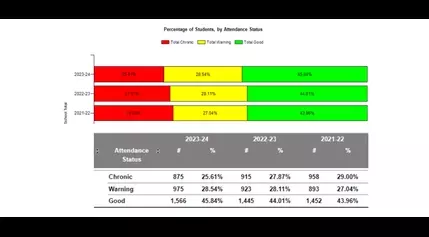When can kids stay home alone? Find out the law in your state
Navigating the Legal Landscape: When Can Kids Stay Home Alone?Leaving your child home alone can be a tricky decision, fraught with concerns about their safety and well-being. While there's no universal age limit, understanding the nuances of state laws and your child's readiness can help you make an informed choice. This comprehensive guide explores the legal landscape and offers practical insights to help you determine when it's appropriate to leave your kids unsupervised.
Empowering Parents: Navigating the Legal Landscape of Leaving Kids Home Alone
Decoding the Legal Landscape: State-by-State Regulations
Across the United States, the legal landscape surrounding leaving children home alone is a patchwork of varying regulations and guidelines. While some states have established specific age requirements, others leave the decision entirely up to parental discretion. Navigating this complex web of laws can be a daunting task, but understanding the nuances in your state can help you avoid potential legal pitfalls.Assessing Your Child's Readiness: Factors to Consider
Determining the appropriate age to leave a child home alone goes beyond simply adhering to state laws. It's a deeply personal decision that requires a careful evaluation of your child's maturity, emotional well-being, and problem-solving abilities. Factors such as their comfort level, access to support, and ability to follow safety protocols should all be taken into account.Establishing a Thoughtful Approach: Preparing Your Child for Independence
Leaving a child home alone for the first time can be a significant milestone, both for the child and the parent. It's crucial to approach this transition with care and consideration, gradually building your child's confidence and independence. By setting clear expectations, establishing communication channels, and ensuring they have the necessary skills, you can help your child navigate this newfound responsibility with ease.Balancing Trust and Caution: Striking the Right Equilibrium
Striking the right balance between trust and caution is essential when it comes to leaving your child home alone. While you want to empower your child with a sense of independence, you also need to ensure their safety and well-being. By fostering open communication, setting appropriate boundaries, and regularly checking in, you can create an environment that nurtures your child's growth while prioritizing their security.Navigating the Legal Landscape: State-Specific Insights
Across the United States, the legal landscape surrounding leaving children home alone is a patchwork of varying regulations and guidelines. While some states have established specific age requirements, others leave the decision entirely up to parental discretion. Understanding the nuances in your state can help you make an informed decision and avoid potential legal pitfalls.Empowering Parents: Practical Strategies for Leaving Kids Home Alone
Leaving your child home alone can be a daunting prospect, but with the right preparation and strategies, you can empower your child to thrive in this newfound independence. From establishing clear rules and communication channels to ensuring they have access to emergency resources, there are numerous steps you can take to support your child's safety and well-being.Fostering Independence: Navigating the Emotional Landscape
The decision to leave a child home alone can be fraught with emotional complexities, both for the parent and the child. It's important to acknowledge and address these feelings, ensuring that the transition is a positive and empowering experience for all involved. By fostering open communication, building trust, and celebrating your child's growth, you can navigate this milestone with confidence and compassion.






















![The History and Influence of Erotica in Fashion [PHOTOS] The History and Influence of Erotica in Fashion [PHOTOS]](https://img.royaweb.io/news/4beefe3f9e2fb9acc8bc998196c8018b.webp)













































































